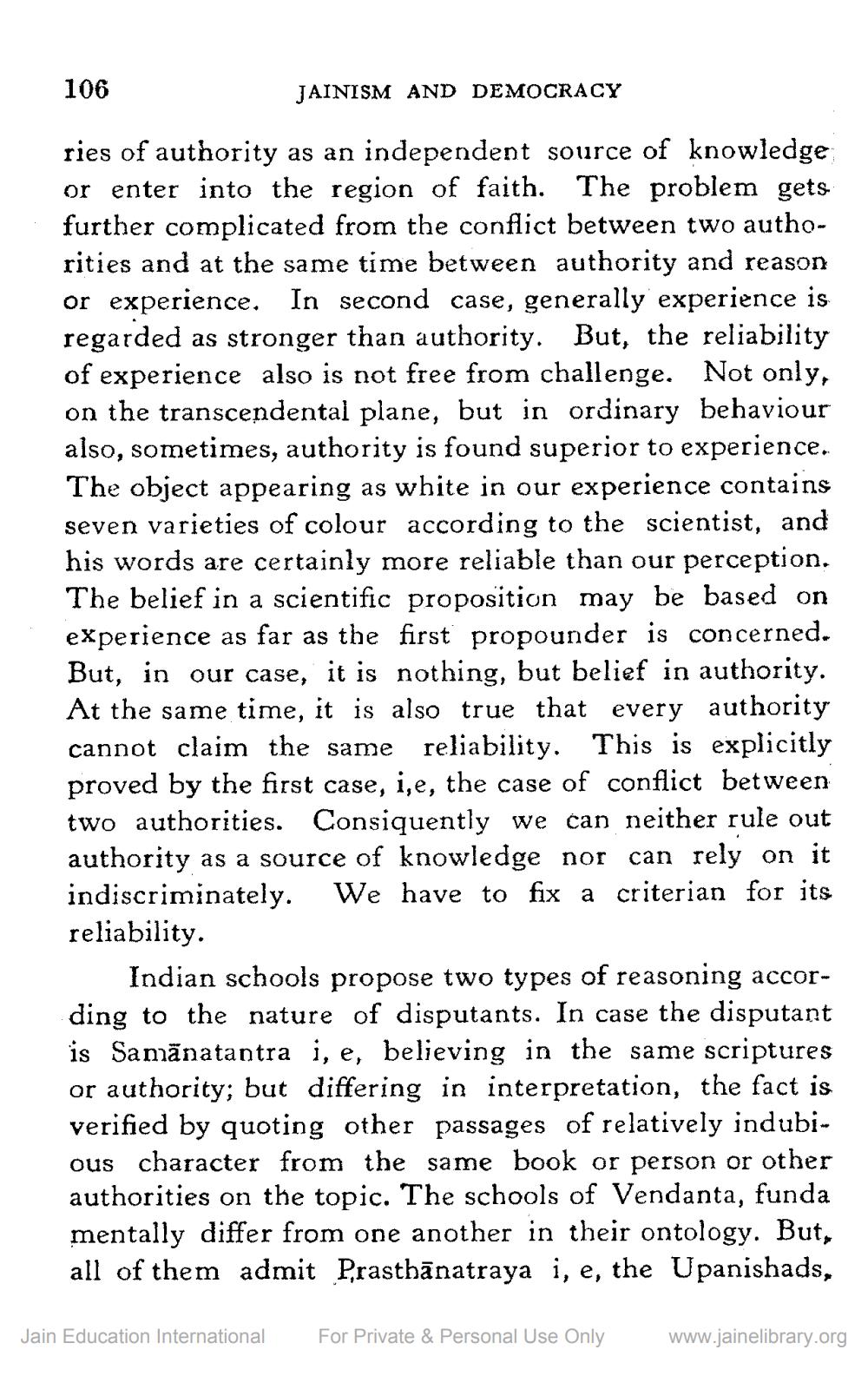________________
106
JAINISM AND DEMOCRACY
ries of authority as an independent source of knowledge or enter into the region of faith. The problem gets further complicated from the conflict between two authorities and at the same time between authority and reason or experience. In second case, generally experience is regarded as stronger than authority. But, the reliability of experience also is not free from challenge. Not only, on the transcendental plane, but in ordinary behaviour also, sometimes, authority is found superior to experience. The object appearing as white in our experience contains seven varieties of colour according to the scientist, and his words are certainly more reliable than our perception. The belief in a scientific proposition may be based on experience as far as the first propounder is concerned. But, in our case, it is nothing, but belief in authority. At the same time, it is also true that every authority cannot claim the same reliability. This is explicitly proved by the first case, i,e, the case of conflict between two authorities. Consiquently we can neither rule out authority as a source of knowledge nor can rely on it indiscriminately. We have to fix a criterian for its
reliability.
Indian schools propose two types of reasoning according to the nature of disputants. In case the disputant is Samānatantra i, e, believing in the same scriptures or authority; but differing in interpretation, the fact is verified by quoting other passages of relatively indubious character from the same book or person or other authorities on the topic. The schools of Vendanta, funda mentally differ from one another in their ontology. But, all of them admit Prasthānatraya i, e, the Upanishads,
Jain Education International
For Private & Personal Use Only
www.jainelibrary.org




